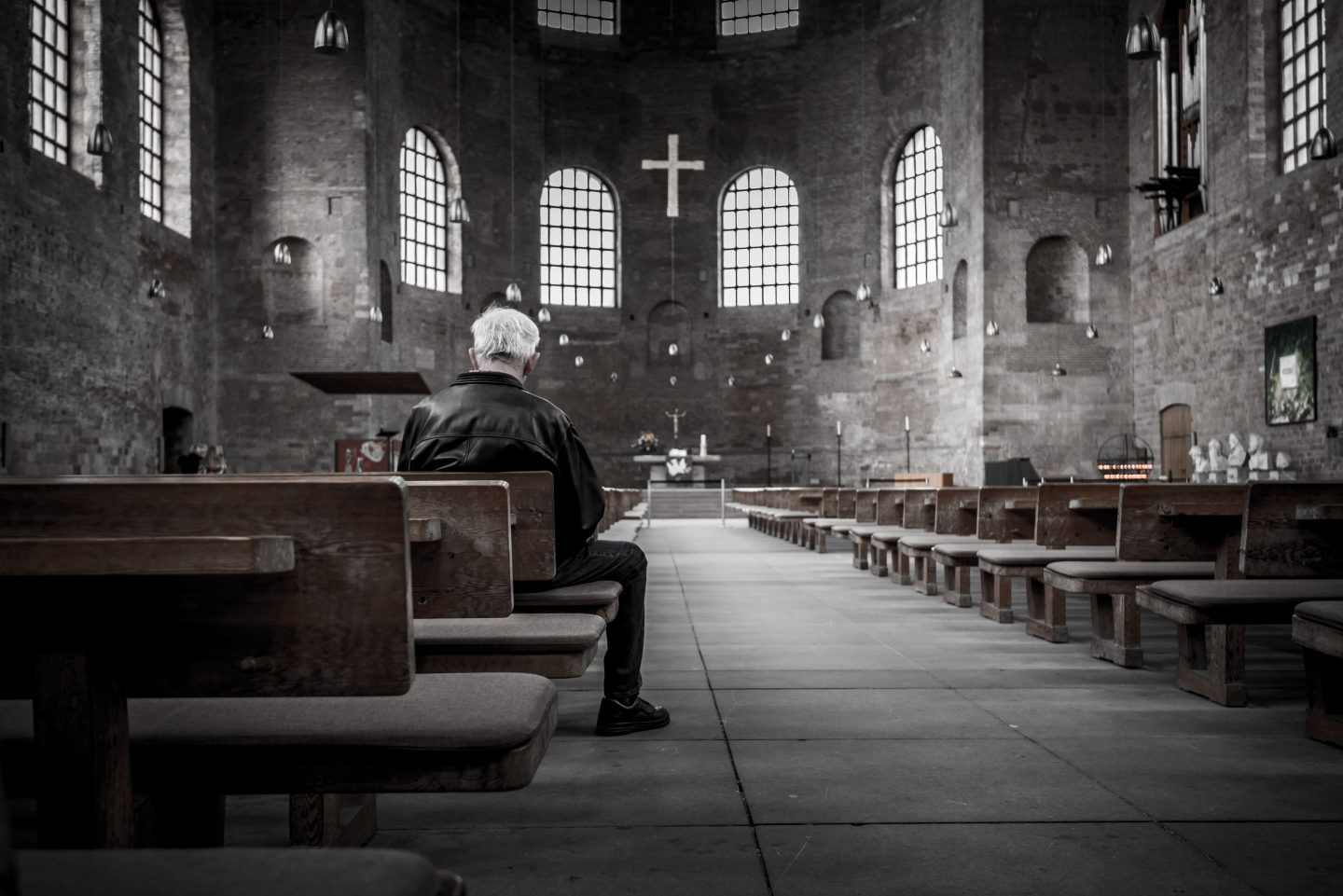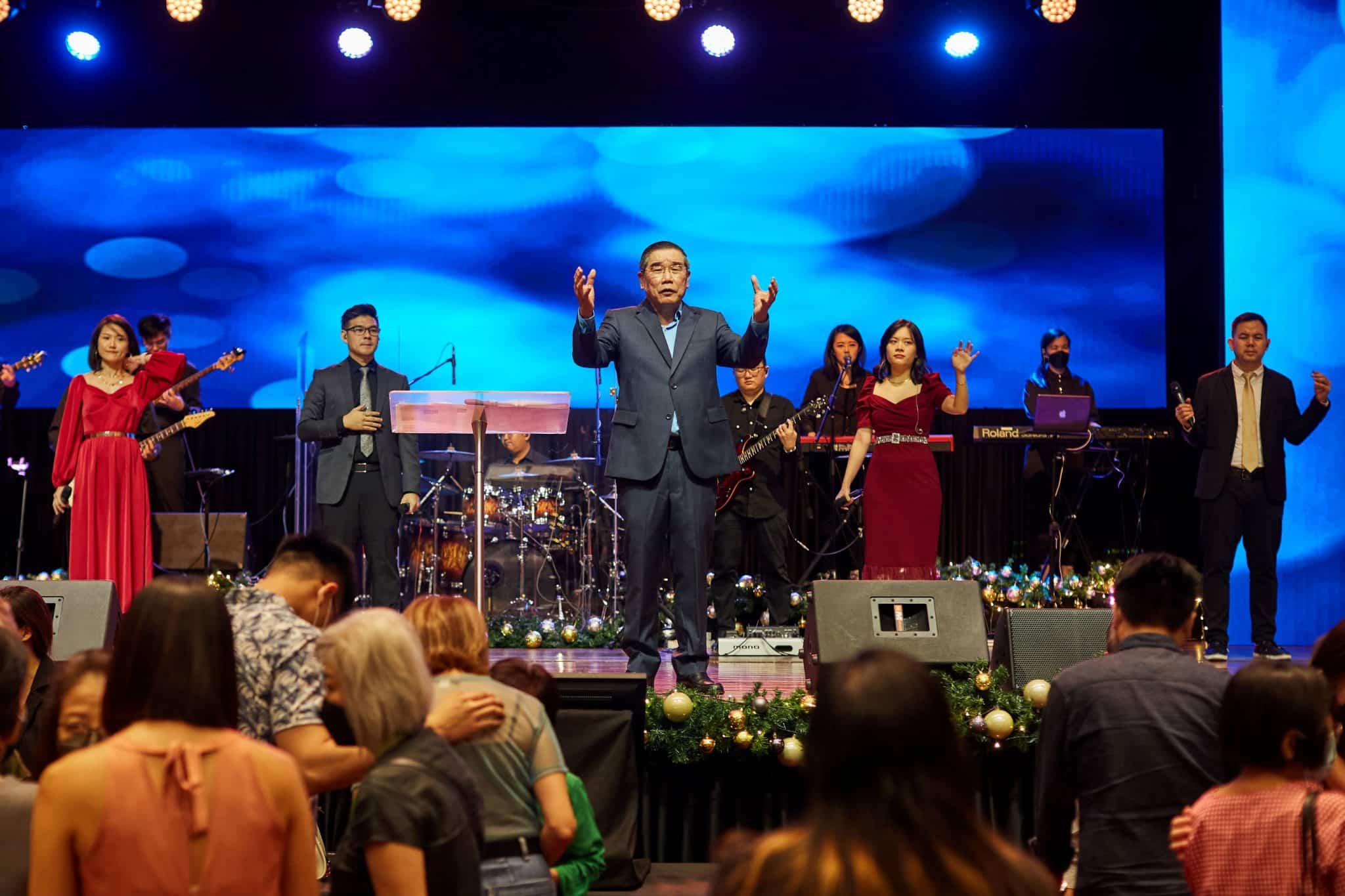
Photo by Stefan Kunze on Unsplash
Burnout. Loneliness. Depression.
Not your usual key words for a church gathering. But such was the theme for a recent retreat that I attended, which was for pastors, ministry leaders and their spouses.
I figure the minor key mood was designed to be broken by the serving of four varieties of durian at break-time, plus the generous provision of coffee (pastors love coffee).
For a good while, the sound system from the conference next door kept usurping the system in our room, belting out a monotonous drone of statistics and figures. It was a metaphor for mind-control which the world tries incessantly to impose on us, making many go mad.
Self esteem at a price
Speaking as an ethnic Chinese, I see how our culture of shame works against people opening up and seeking help when they are near the end of their rope. Generally, we feel embarrassed to talk about our personal afflictions (especially the “hidden ones”), but feel it is right and proper to express deep sorrow for the afflictions of others. Tell me if this is healthy for our own mental and emotional state?
Many pastors and ministry leaders run the risk of becoming walking time-bombs because of the harsh realities of ministry life.
But to be honest, we cannot pin all the blame on the world. We often allow ourselves to buy in to the pressure-cooker culture so prevalent in my beloved country.
When we pin our self-esteem on our credentials, our work achievements; when we secretly pride ourselves on how full our calendars are with activities – even things we call “ministry” – and are afraid of being caught with being at leisure, we have to seriously question ourselves when our lives begin to crumble.
When we help perpetuate a certain culture where everyone comes to you for help, and everyone expects you to show up for every church event, then … jialat lah.
It is scary when we allow ourselves to think that this state of affairs is okay. Because I am certain it is taking a silent but deadly toll on many a minister.
Walking time bombs
During the retreat, we conducted a quick online survey. We asked questions like these:
- How many hours of sleep are you clocking daily on average?
- How many hours a week do you spend doing ministry work?
- How often do you exercise in a week?
- How often do you observe a personal day of rest each week?
- When was the last time you had a holiday? (Church camp does not count.) Or a sabbatical?
- How many times have you experienced being so exhausted you felt you couldn’t do any work?
- How often do you meet up with some Christian friend(s) to share about your personal lives?
I won’t reveal any of the findings, but it is obvious that certain answer patterns are warning signs.
Our motivation to do all things for the glory of God can drive us to keep on doing more, and more, and more.
Many pastors and ministry leaders run the risk of becoming walking time-bombs because of the harsh realities of ministry life.
How do you turn away someone who calls you on your rest day with an urgent medical problem or relationship crisis? How do you handle having to conduct a wedding in the morning, and then don your black robes to oversee a funeral in the afternoon? Our compassion and sense of duty compel us to keep serving, even when the emotional labour is tremendous.
Our motivation to do all things for the glory of God can drive us to keep on doing more, and more, and more. I say this because I’ve been there myself; even now I am often tempted to keep piling more stuff on and live life dangerously (in a bad way).
This cannot go on.
One day I hope to write about a vision for a Holy Order, an urban monastic movement, a manner of being Church where we joyfully live out the life-giving rhythms of Rest and Work, Reflection and Action.
It would be an assembly where we could be very happy with not “getting stuff done”, where we discover more deeply the meaning of Sabbath and Jubilee (for ourselves and for others), and how, in God’s economy, doing less often means doing more.
This would be a truly counter-cultural community.
Serving those who lead us
But for now, I just want to focus on what we, the members, can do for our leaders.
Yes, this flips conventional thinking on its head – we’d expect our leaders to take the lead in bringing about change and re-shaping the culture of the church so that we don’t let our people work themselves to death.
But I do want to address the pews, because we are all a royal priesthood and we can take urgent action rather than always wait to be told what to do.
What a beautiful church it would be that prays for its pastors, and then avails itself to be the answer to those prayers.
Furthermore, in many situations, the leader is hard-pressed to push for things that appear to be for self-interest. Let’s not make it so difficult for the ones who serve us by leading us.
So here are a few thoughts for our prayerful consideration. I confess there’s more that I myself can do for my pastors, and I must. (For simplicity, I will just mention pastors, but really I speak for all church leaders here.)
The next time you speak to your pastor, can it not be all about your problems or what he can do for you? How about asking how he is? Best over coffee. Pastors love coffee.
How can we help to jealously guard the Sabbath of our pastors? You can offer to safe-keep your pastor’s cellphone for that day (no harm asking!).
How about we also fight for our pastor’s sabbatical? Sometimes this needs to be written into policy for starters (Members of church HR committees please take note).
The rest of us can create a giant spreadsheet to divide the work that must continue.
How can we care for our Pastor’s family? Surely that includes caring for their family-time, and even the holidays. How about their finances (touchy subject!), or retirement plan (very touchy subject!)?
Few would talk about themselves being paid too little, but if it is really the case, then would someone be the voice for justice on the pastor’s behalf? The pastor’s advocate, if you will.
What a mature church it would be that prays that its pastors not seek their approval, but only God’s delight and direction.
How can we create moments in our church life when we affirm and appreciate our pastors without making them into idols? Or even moments when they can share what they are really going through … without feeling the need to always appear strong and not vulnerable, when really we are all broken people saved by grace alone.
Last but surely not the least, can we determine to pray for our pastors? Contend for them at the prayer altar. What a mature church it would be that prays that its pastors not seek their approval, but only God’s delight and direction.
What a beautiful church it would be that prays for God to provide for all the needs of its pastors, and then avails itself to be the answer to those prayers. That’s the body of Christ at work.
Then, perhaps, burnout, loneliness and depression would be spoken of as only things gone by. And the Gospel would shine through all the more.
We are an independent, non-profit organisation that relies on the generosity of our readers, such as yourself, to continue serving the kingdom. Every dollar donated goes directly back into our editorial coverage.
Would you consider partnering with us in our kingdom work by supporting us financially, either as a one-off donation, or a recurring pledge?
Support Salt&Light



